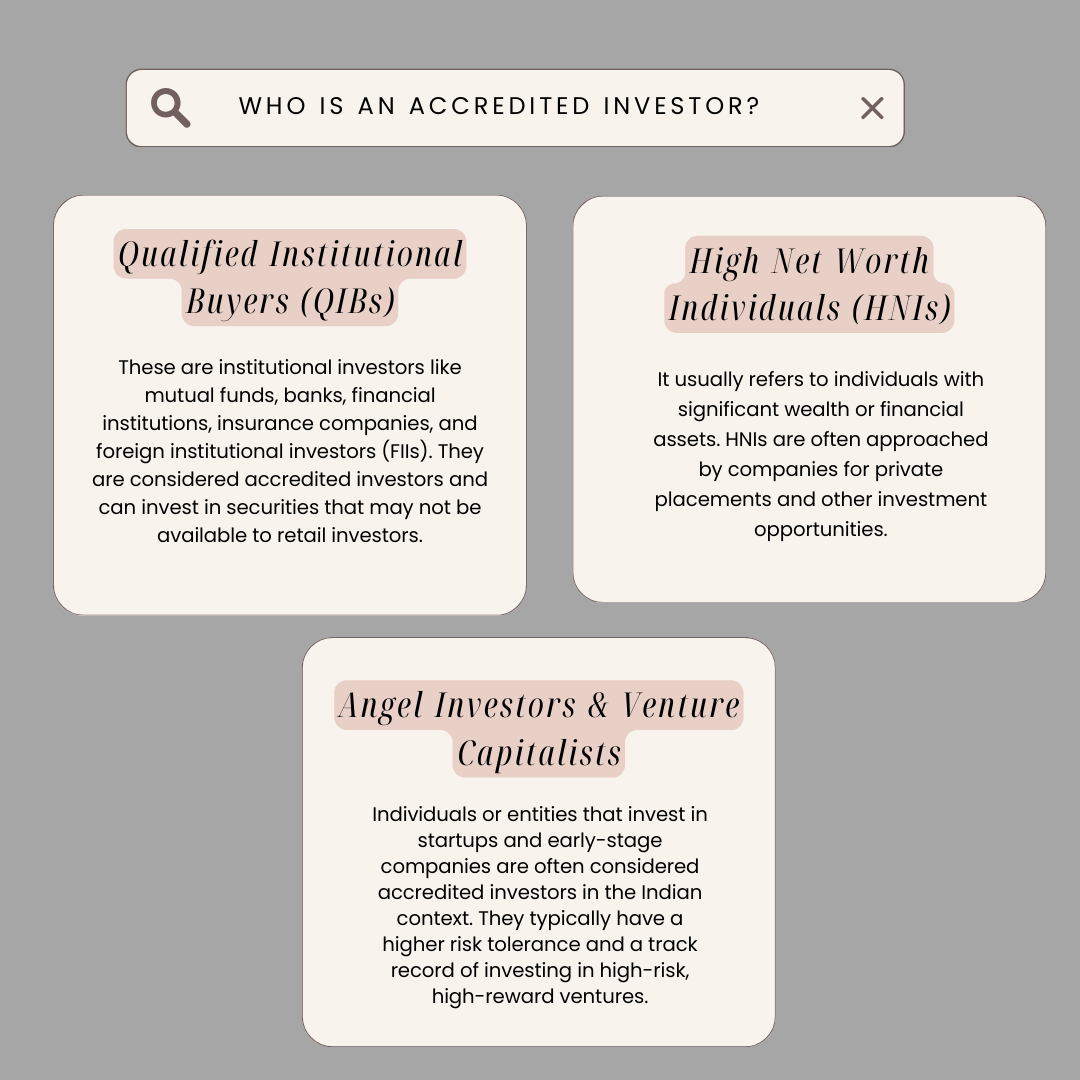All Categories
Featured
Table of Contents
These investors are presumed to have the financial sophistication and experience required to assess and invest in risky investment opportunities unattainable to non-accredited retail financiers. In April 2023, Congressman Mike Flooding introduced H.R.
Expert Best Crowdfunding Sites For Accredited Investors – Albuquerque
For now, currently must capitalists have to the term's existing definition. There is no formal procedure or federal certification to come to be an accredited financier, a person may self-certify as a certified financier under present guidelines if they earned more than $200,000 (or $300,000 with a spouse) in each of the past two years and anticipate the exact same for the present year.
People with an active Series 7, 65, or 82 permit are likewise taken into consideration to be approved capitalists. Entities such as firms, collaborations, and trust funds can also attain accredited capitalist standing if their investments are valued at over $5 million. As accredited capitalists, people or entities may take part in private investments that are not registered with the SEC.
Here are a couple of to consider. Personal Equity (PE) funds have revealed impressive growth in recent times, apparently undeterred by macroeconomic difficulties. In the 3rd quarter of 2023, PE offer volume exceeded $100 billion, approximately on the same level with offer activity in Q3 of the previous. PE companies pool funding from recognized and institutional financiers to acquire controlling rate of interests in mature private companies.
In enhancement to capital, angel investors bring their professional networks, guidance, and experience to the startups they back, with the assumption of endeavor capital-like returns if the organization removes. According to the Center for Venture Research study, the typical angel investment amount in 2022 was approximately $350,000, with financiers getting a typical equity risk of over 9%.
Value Growth Opportunities For Accredited Investors Near Me – Albuquerque New Mexico
That stated, the arrival of on-line exclusive credit score systems and niche sponsors has made the asset class obtainable to private certified capitalists. Today, investors with just $500 to invest can take benefit of asset-based exclusive debt opportunities, which use IRRs of as much as 12%. In spite of the increase of shopping, physical grocery store stores still represent over 80% of grocery store sales in the United States, making themand particularly the actual estate they run out oflucrative investments for certified investors.
In comparison, unanchored strip centers and area centers, the next 2 most greatly transacted sorts of realty, taped $2.6 billion and $1.7 billion in deals, respectively, over the exact same duration. What are grocery store store-anchored? Rural shopping center, electrical outlet malls, and various other retail facilities that feature a significant food store as the location's major lessee typically drop under this category, although shopping centers with encased pathways do not.
To a minimal degree, this phenomenon is additionally real backwards. This uniquely cooperative relationship between a center's renters drives up demand and keeps leas raised. Approved financiers can buy these areas by partnering with realty private equity (REPE) funds. Minimum financial investments generally begin at $50,000, while overall (levered) returns range from 12% to 18%.
Trusted Accredited Investor Opportunities Near Me (Albuquerque New Mexico)

The market for art is additionally increasing. By the end of the years, this number is expected to come close to $100 billion.
Financiers can currently have diversified exclusive art funds or purchase art on a fractional basis. real estate investing for accredited investors. These alternatives come with investment minimums of $10,000 and provide internet annualized returns of over 12%.

Over the past numerous years, the recognized financier meaning has been criticized on the basis that its single focus on an asset/income test has unjustly left out just about the most affluent people from lucrative investment opportunities. In reaction, the SEC started considering ways to expand this interpretation. After a considerable comment duration, the SEC took on these changes as a way both to record people that have reputable, alternate signs of economic sophistication and to update specific out-of-date parts of the meaning.
The SEC's primary problem in its law of non listed safeties offerings is the defense of those investors that lack an enough degree of economic sophistication. This concern does not put on knowledgeable employees since, by the nature of their placement, they have enough experience and accessibility to economic information to make enlightened financial investment decisions.
Reliable Accredited Investor Income Opportunities
The figuring out element is whether a non-executive employee in fact takes part in the personal investment business's investments, which need to be determined on a case-by-case basis. The addition of educated staff members to the recognized investor meaning will certainly additionally enable more employees to spend in their company without the exclusive investment company risking its very own standing as a certified capitalist.
Before the changes, some personal investment firm took the chance of losing their accredited financier condition if they enabled their employees to spend in the company's offerings. Under the modified interpretation, a greater number of private financial investment business employees will certainly now be qualified to spend. This not only creates an added source of funding for the personal investment firm, but also additional lines up the interests of the staff member with their employer.
Secure High Yield Investments For Accredited Investors (Albuquerque)
Presently, only individuals holding particular broker or monetary advisor licenses ("Series 7, Series 65, and Series 82") qualify under the meaning, yet the amendments provide the SEC the ability to consist of additional accreditations, designations, or qualifications in the future. Specific kinds of entities have likewise been contributed to the interpretation.
When the definition was last updated in 1989, LLCs were fairly uncommon and were not consisted of as an eligible entity. Under the modifications, an LLC is taken into consideration a certified investor when (i) it has at the very least $5,000,000 in properties and (ii) it has not been formed solely for the details purpose of getting the securities used.

Likewise, certain household offices and their customers have actually been included in the meaning. A "household workplace" is an entity that is developed by a family members to handle its properties and offer its future. To ensure that these entities are covered by the interpretation, the amendments specify that a family workplace will now qualify as a recognized investor when it (i) handles a minimum of $5,000,000 in properties, (ii) has not been developed particularly for the function of getting the used safeties, and (iii) is routed by an individual who has the economic class to evaluate the advantages and risks of the offering.
The SEC requested comments relating to whether the financial thresholds for the earnings and asset examinations in the definition must be adjusted. These thresholds have been in place since 1982 and have actually not been changed to make up rising cost of living or other variables that have actually transformed in the stepping in 38 years. However, the SEC eventually decided to leave the possession and earnings thresholds the same for now.
Latest Posts
Surplus Funds Forms
Tax Sale Property Listings
Do I Owe Property Taxes After Foreclosure